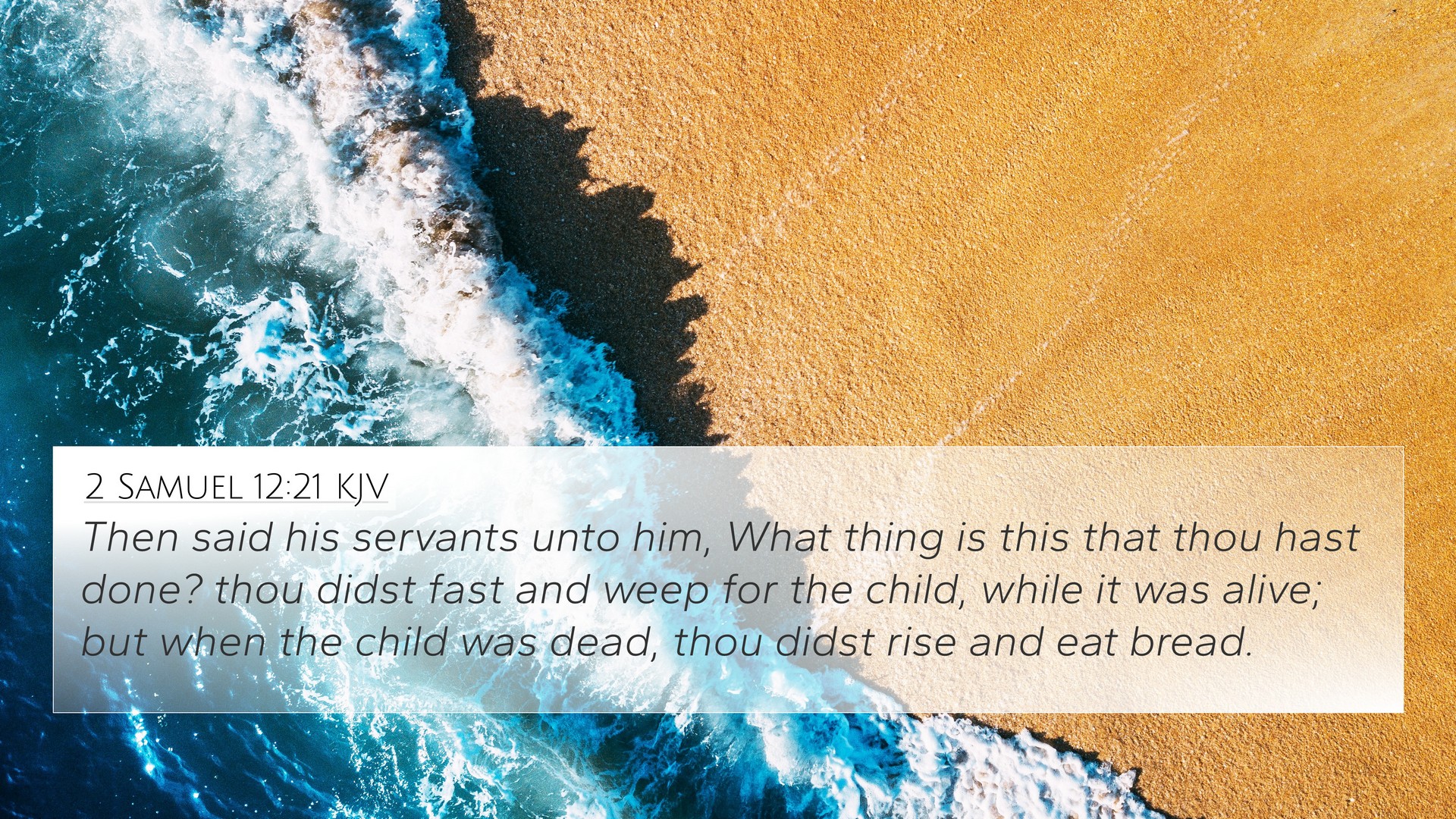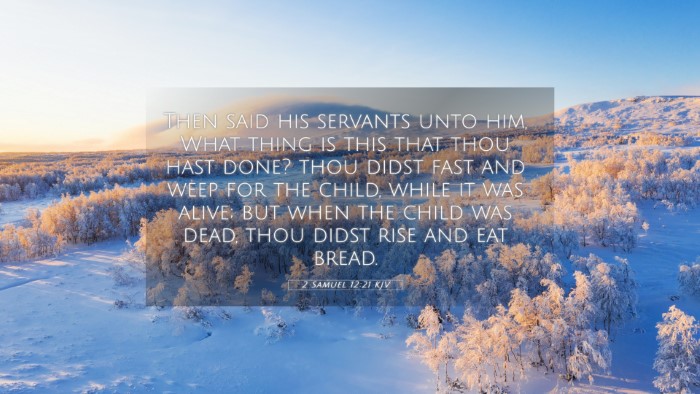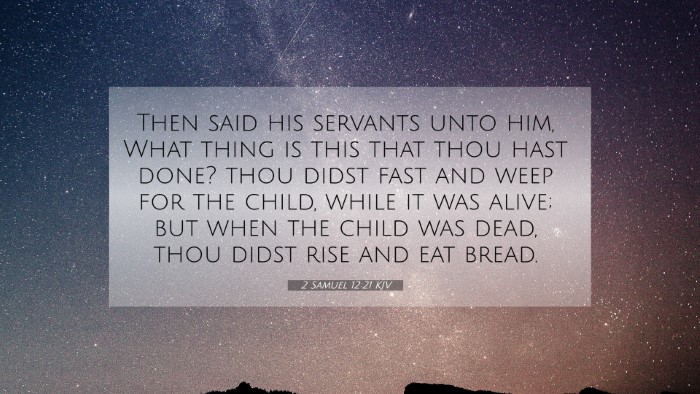Understanding 2 Samuel 12:21
Verse: "Then said his servants unto him, What is this that thou hast done? thou didst fast and weep for the child, while it was alive; but when the child was dead, thou didst rise and eat bread." (2 Samuel 12:21 KJV)
Overview of the Context
This verse occurs in a profound narrative concerning King David following the death of his child, who was born from his union with Bathsheba. Nathan the prophet declared judgment upon David due to his sin with Bathsheba and the murder of her husband, Uriah. The child became gravely ill as a consequence of David's actions.
Commentary Insights
Various biblical scholars have provided commentary on this verse to elucidate its meaning.
Matthew Henry's Commentary
Matthew Henry emphasizes the emotional turmoil that David experienced. He notes that David’s fasting and weeping in the face of the child's illness displayed his desperation and grief, while his subsequent rise to eat after the child's death signifies a profound shift in his understanding of God’s will. Henry interprets this as an act of submission to God's sovereignty, illustrating that prayer and fasting do not guarantee our desired outcomes.
Albert Barnes' Commentary
Albert Barnes highlights the servants' confusion regarding David's behavior. He draws attention to the striking contrast between David's reaction to the child's life and his response to the child's death. Barnes argues that David's behavior underscores a transition from hope to acceptance, revealing the complexities of mourning and the human experience of grief.
Adam Clarke’s Commentary
Adam Clarke discusses the significance of the child's death as a turning point. He points out that David’s actions reflect a change from communal mourning to personal acceptance, interpreting eating after weeping as a recognition of God’s ultimate authority over life and death. Clarke asserts that this narrative serves to teach believers about the nature of God’s plans and the necessary, though painful, acceptance of His will.
Key Themes and Interpretations
- The Sovereignty of God: The verse emphasizes God's control over life and death, suggesting that His decisions, though painful, are rooted in divine wisdom.
- Mourning and Acceptance: David's initial mourning demonstrates genuine grief, while his acceptance post-death illustrates the resilience of faith amid calamity.
- Prayer and Divine Will: The passage reflects the reality that fervent prayer does not always result in the intended outcome, prompting deeper engagement with God's will.
- Human Emotion: Highlighting the complexity of human emotions, the narrative foregrounds how grief can evolve into acceptance of challenging circumstances.
Cross-References
Various verses in the Bible provide thematic connections to 2 Samuel 12:21, enriching the understanding of its messages:
- Psalm 51:10-12 - David's repentance showcases the importance of a contrite heart following sin.
- Isaiah 55:8-9 - This highlights that God’s thoughts and plans are beyond human understanding.
- Romans 8:28 - All things work together for good, emphasizing that God's ultimate purpose transcends individual suffering.
- James 4:15 - Acknowledging God's will in personal planning and hopes reflects submission to divine sovereignty.
- 1 Corinthians 15:26 - Death is an enemy which God will ultimately conquer, providing hope in mourning.
- Revelation 21:4 - The promise of no more death or suffering resonates with the hope beyond earthly sorrow.
- 2 Corinthians 1:3-4 - God comforts us in our troubles, making our experiences meaningful for helping others.
Thematic Bible Verse Connections
This verse opens up a rich field for thematic connections within the Scripture.
Tools for Bible Cross-Referencing
To delve deeper into these connections, various resources can be employed:
- Use a Bible concordance to find verses related by theme or keywords.
- A cross-reference Bible study guide helps in identifying similar narratives and teachings in different parts of the Bible.
- Employ a Bible cross-reference system which systematically organizes correlations between verses.
Conclusion
2 Samuel 12:21 serves as a profound reminder of the complexities of human emotion in the face of divine sovereignty. The insights provided by public domain commentaries along with the cross-references enrich the understanding of this verse, portraying a narrative steeped in grief, acceptance, and the overarching themes of God's will.



